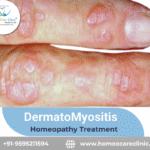Introduction
My mission is to discuss in detail one of the mental health problems – Intermittent Explosive Disorder (IED) usually characterized by some kind of violent behavior like sudden, intense outbursts of impulsive, aggressive, or angry verbal outbursts or episodes of shouting. These are usually in large that are enough to ruin other people’s work and private lives.
Global Prevalence
The world over, the levels of Intermittent Explosive Disorder intensity come up and down. Research shows that every 2-3% of the world’s population could experience IED at least once in their lifetimes. It is found more often in young adults and is less likely to occur with age.
Indian Scenario
In India, while the situation is such that exact data on IEDs is not readily available, mental health specialists report an increasing number of cases. The level is thought to be close to the universal rate of this disorder, with urbanization and social changes probably taking much of the blame.
Intermittent Explosive Disorder Causes
The exact etiology of Intermittent Explosive Disorder has not yet been fully established. But, there are a number of possible factors that might lead to its development:
Genetics: The risk of having mood disorders or being a victim of substance abuse among family members might make the chances of developing aggressive behavior higher.
Brain chemistry: Distortion in neurotransmitters, specifically serotonin, may be a part of this.
Environmental factors: Physical or emotional abuse is a common cause of children in this situation.
Trauma: Going through or observing various types of trauma are associated with IEDs.
Intermittent Explosive Disorder Symptoms
These are typically dramatic and severe symptoms caused by the disorder:
- quick, severe anger or aggression
- Threatening or even physical violence
- Damage to property during the episode
- Feeling of tension or arousal before an outburst
- Relief or inward reflection after an episode
- Easily angered or stronger outbursts between
Conventional Medicine Approach and Side Effects
The most common type of medication for IED is through therapy be it medication or counseling. The main methods include:
Cognitive Behavioral Therapy (CBT)
Pitchers of anger management
selective serotonin reuptake inhibitors (SSRIs)
drugs that help to balance mood
tranquilizers
Generically speaking, these treatments are blessed with side effects as well such as:
- insomnia and headaches excluding sex problems
- Bad sleep
- Dysfunction of sexuality in some cases
- Obesity
- Changes in mood and increased anxiety
Intermittent Explosive Disorder Treatment and Advantages of Homeopathy
As a practitioner, I have seen a lot of homeopathic treatment benefits firsthand for patients with Intermittent explosive disorder:
Personalized approach: Homeopathy doesn’t only cure particular dysfunctions through the removal of unpleasant symptoms; it looks at the person as a whole, and the origins and the environment causing problems are removed.
Low side effects: Homeopathic treatments very often are completely safe and well-tolerated by people of all ages.
No habit forming: Alternative therapy should come with the least possible side effects and no dependencies like the new drugs for the specific condition.
The remedies solve the underlying cause of the disease: Homeopathy seeks to cure it by affecting its root causes not just controlling the symptoms.
Gentle and natural treatment: These medications interact with the natural healing mechanism of the body.
Five Homeopathic Medicines for Intermittent Explosive Disorder
- Nux Vomica
Nux Vomica is very effective for people who are very excitable, and easily provoked
- Chamomilla
This treatment is useful for individuals who are often quick to anger and have a hard time controlling their temper. This treatment calms them down and brings their feelings to equilibrium.
- Belladonna
Doctors like to give a new patient sudden, intense anger outbursts this drug which helps to down-like inhibitions in the head and in turn shorter the periods of time that anger episodes last
- Staphysagria
Staphysagria can be used to treat a person who suppresses their anger and then blows up suddenly without any warning
- Lycopodium
The best medicine is Lycopodium which covers many of its physical and emotional indications.
Frequently Asked Questions
- How long does homeopathic treatment for IED typically last?
The duration of treatment, the starting point, and the quality of it will vary according to the personal characteristics of the person affected. In my practice, some people notice a significant difference within a few weeks to months, which is hurtful than being treated for the long term and getting benefits from time to time.
- Can homeopathy be used alongside conventional treatments for IED?
Yes, it is possible that homeopathy is beneficial in parallel to a conventional treatment program. It is, however, mandatory to inform both you and your conventional doctor about the other treatments you are getting.
- Are there any lifestyle changes that can support homeopathic treatment for IED?
Yes, some of the lifestyle changes I suggest are the performance of stress-reduction activities by the client, engaging in regular physical activity, and the practice of mindfulness techniques in authentification of the wellness.
- How does homeopathy address the underlying causes of IED?
HomeopathyA treats the problem by stimulating the natural recovery system of the body by choosing remedies based on the most unique symptom picture of each individual. Our emphasis is on the establishment of the root causes of the disorder not just the fact that it manifests itself in this way.
- Is homeopathic treatment for IED safe for children and adolescents?
Yes, homeopathic treatments are usually not a matter of concern for people of all age groups. Nonetheless, it is important to confer with a certified homeopath for correct diagnosis and treatment, especially with young patients.






